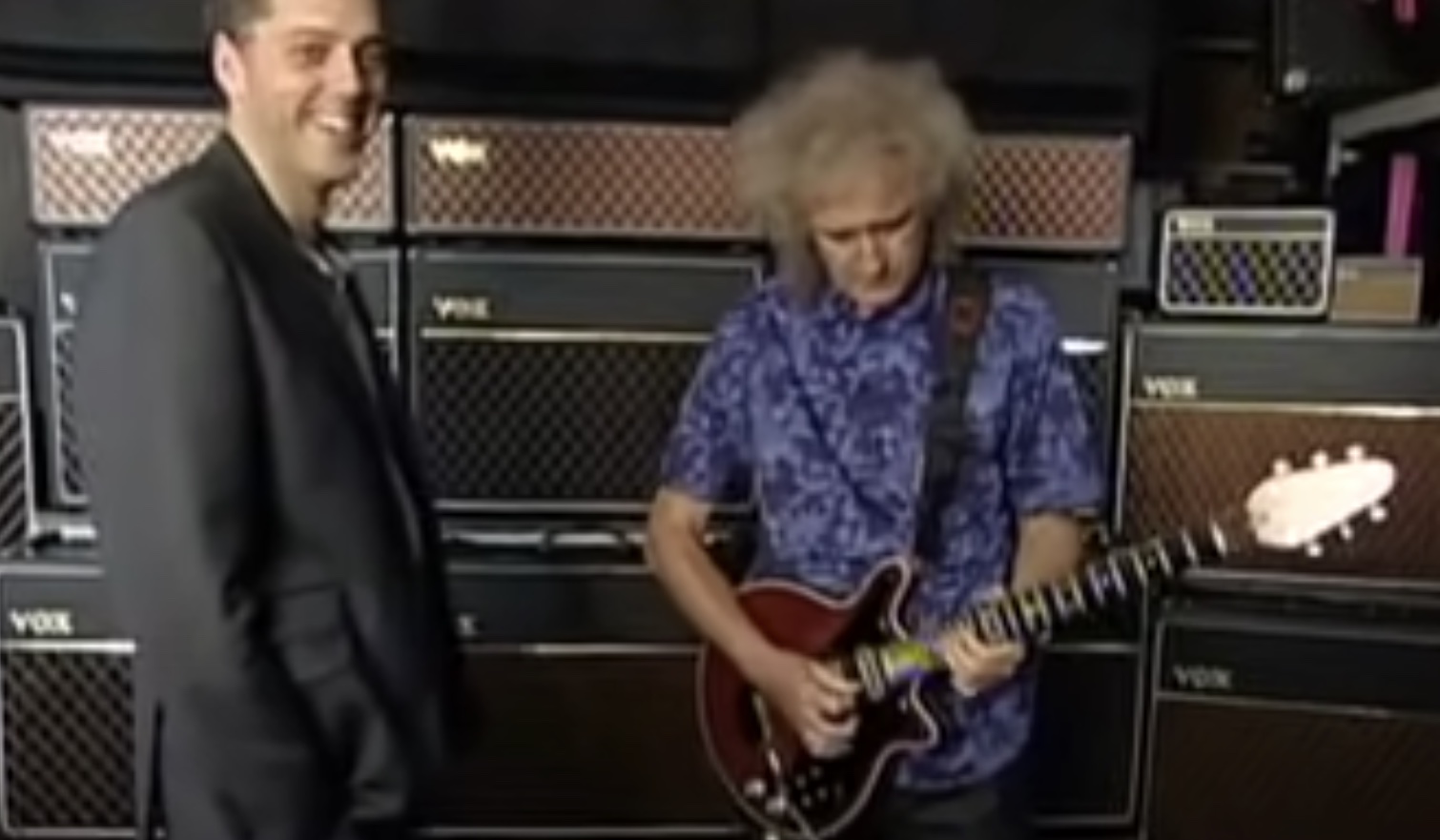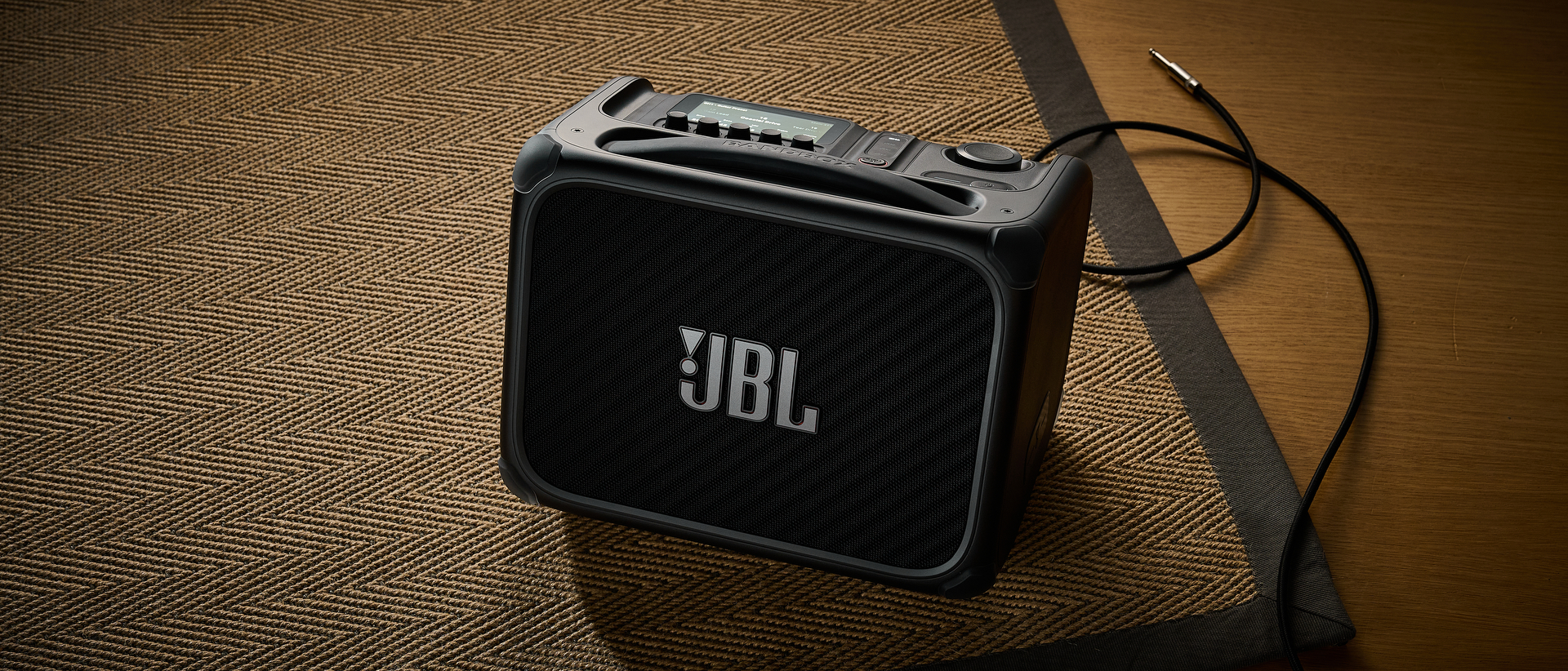Watch Brian May make a TV presenter's day with an unaccompanied Bohemian Rhapsody solo through his epic Vox AC30 rig
Iain Lee was like a kid in a candy store as the Queen guitarist demonstrated – up-close and personal – the magical, singing tone of one of his most famous solos

All the latest guitar news, interviews, lessons, reviews, deals and more, direct to your inbox!
You are now subscribed
Your newsletter sign-up was successful
In 2011, the BBC produced a documentary centered on Vox Amps, and their impact on the history of rock music.
Titled Vox Pop: How Dartford Powered the British Beat Boom, the film features a number of the brand's most famous users, among them Queen electric guitar hero Brian May.
In one particularly killer segment of the film, May picks up his Red Special signature guitar and – surrounded by an awe-inspiring stack of his favored Vox AC30 guitar amps – shows presenter Iain Lee exactly how the AC30's rich, creamy distortion underpins his guitar sound.
At one point, May unpacks the tone of his Bohemian Rhapsody solo (which, in 2020, was voted the greatest guitar solo of all time by Guitar World readers.)
For the Bohemian Rhapsody solo, the Red Special's neck and middle pickups, May explains, are "set against each other". He then shows Lee what he means by playing, unaccompanied, the first few bars of the solo.
Lee can't keep a smile off his face during the display of lead prowess, turning – in a wonderful bit of television – to the cameras and grinning from ear to ear in what was surely one of those 'this job has some decent perks!' moments.
You can see the magical moment beginning at around the 1:35 mark below.
All the latest guitar news, interviews, lessons, reviews, deals and more, direct to your inbox!
After Lee thanks May for the quick-fire performance, the latter explains, "The amp kinda brings it out. The whole system brings out those high harmonics, so it sounds an octave higher than it really is."
May was originally inspired to purchase an AC30 by one of his own heroes, blues guitar legend Rory Gallagher.
“It’s all about Vox AC30s and the treble booster – which was all inspired by Rory Gallagher," May told Guitar World in a 2021 interview centered around the creation of Bohemian Rhapsody. "There’s really very little else on my guitar. There are no effects boxes as a rule. I used delays and stuff, but the fundamental tone that you hear is the guitar and the treble booster and the AC30. And the AC30 gives it that incredible throat, which is variable.
“The more you turn it up the more it goes into saturation. It doesn’t distort that much, and you’re still in the position at about nine and a half where you can still play chords and they still sound like chords. It doesn’t sound like a big fart [laughs].
“So it’s a unique thing and we know why that is now," the Queen guitarist continued, "because the AC30 is fundamentally a class A amplifier, and because of the way the valves are used, they’re biased half way up, they don’t distort until you drive them very, very hard, and then they go smoothly into that distortion. So that’s the whole thing. I get so used to that being the way that the guitar speaks, I take it for granted.“
Just this week, ahead of NAMM 2023, May joined forces with Vox to make that legendary sound “accessible to all” with the introduction of the Vox amPlug Brian May and MV50.
The former is a headphone amp that's modeled after a cranked AC30 signal chain, and features a Treble Booster setting and three onboard effects – Brighton Rock delay, phaser and chorus.
The latter, meanwhile, is based on Vox MV50 circuitry and AC30 tone, and sports Vox's Nutube technology and a Knight Audio Technologies treble booster for a closer approximation of May's tone.
For more info on the amps, visit Vox's website.
Jackson is an Associate Editor at GuitarWorld.com. He’s been writing and editing stories about new gear, technique and guitar-driven music both old and new since 2014, and has also written extensively on the same topics for Guitar Player. Elsewhere, his album reviews and essays have appeared in Louder and Unrecorded. Though open to music of all kinds, his greatest love has always been indie, and everything that falls under its massive umbrella. To that end, you can find him on Twitter crowing about whatever great new guitar band you need to drop everything to hear right now.

